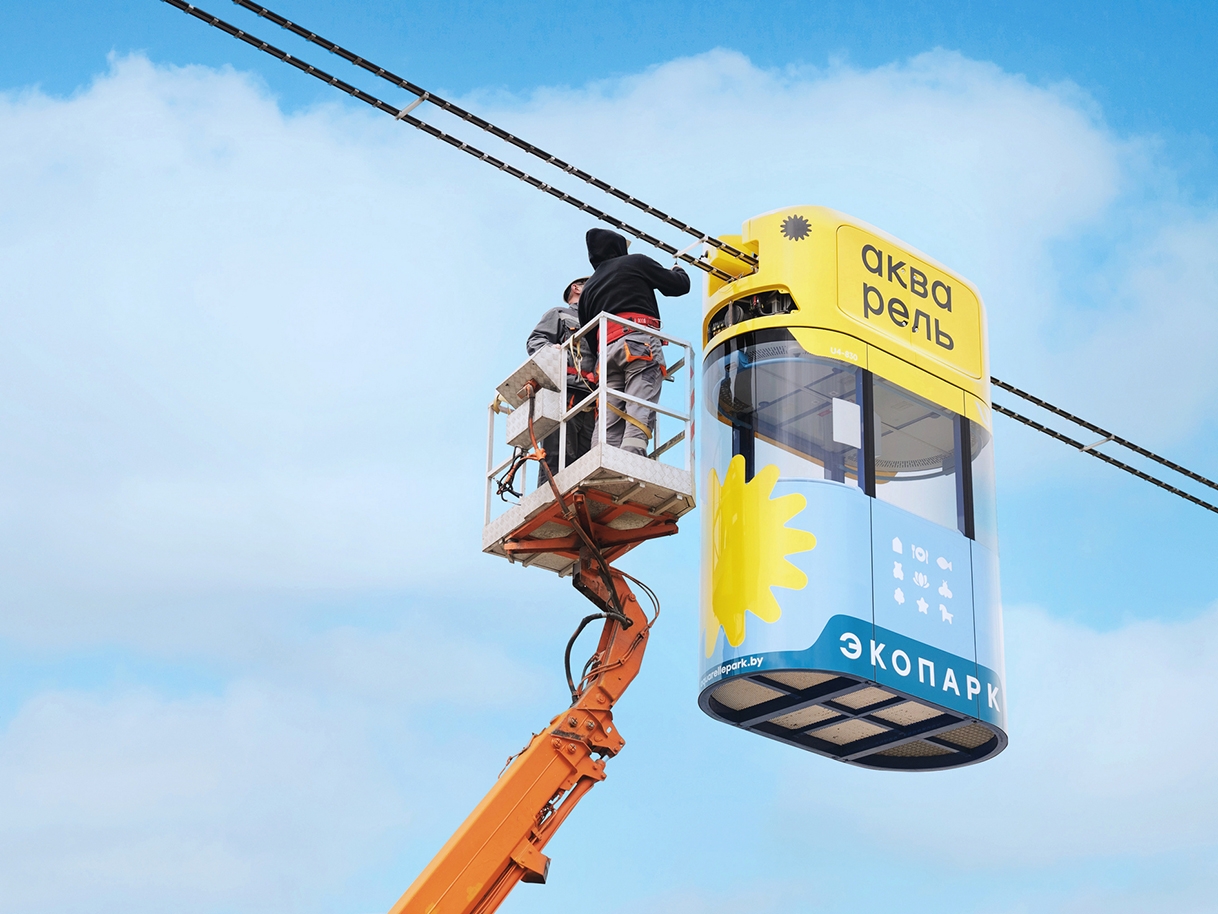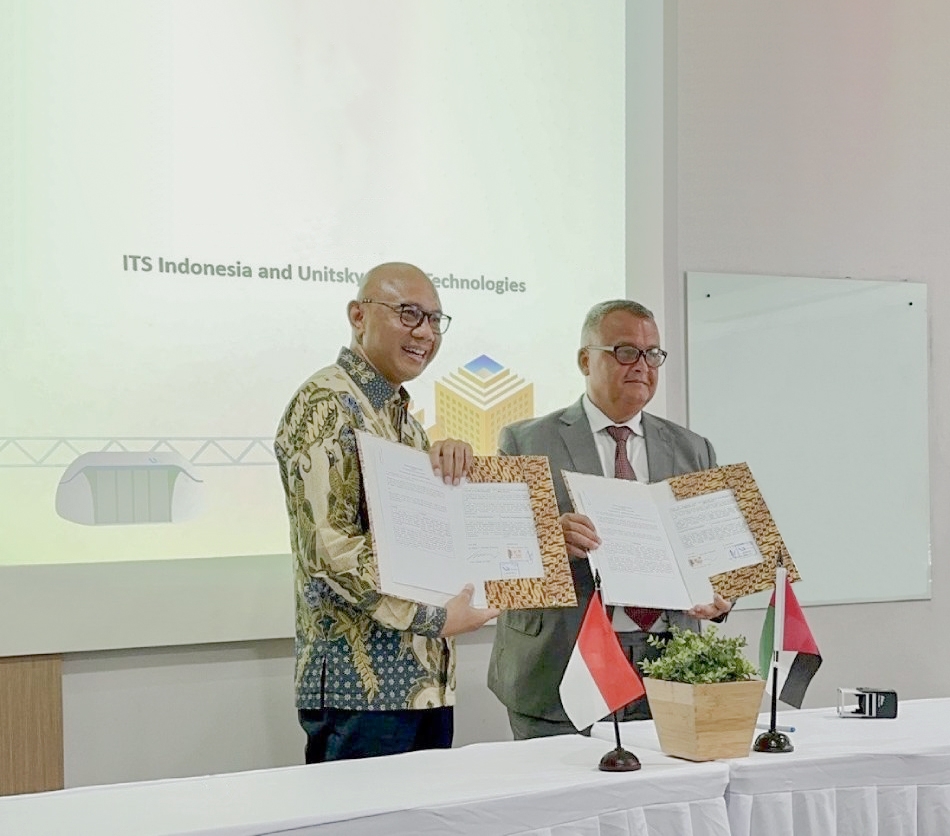The Expert Opinion of General Director of Unitsky String Technologies Inc. Was Published in Forbes

Forbes, one of the most authoritative financial and economic publications in the world, published an expert opinion of General Director of Unitsky String Technologies Inc. Nadezhda Kosareva. The article raises the problem of air pollution in cities, describes its negative impact on humans, and also considers ways out of the current unfavorable situation. Thus, among the options that can improve air quality in large settlements, the introduction of highly efficient overpass transport in cities is mentioned. In addition, the active use of high technologies in passenger and cargo transportation is proposed. You can learn more about the opinion of the General Director of UST Inc. in the article, the text of which we provide below.
How Businesses Can Help Reshape Urban Transportation To Improve Air Quality

GETTY
While the entire world continues to watch with bated breath for signs of the end of the Covid-19 pandemic, environmental problems have taken a back seat. Although the restrictions due to Covid-19 actually allowed us to reduce the amount of hazardous emissions, ecologists worry that the situation will reverse after the pandemic is over.
Air pollution is a problem that shouldn't be forgotten. Europe has been fighting it for many years. Almost every city dweller breathes air that is polluted far beyond World Health Organization's air quality limits. Air pollution scales up the risk of diseases like lung cancer, asthma and others. Ambient air pollution caused 4.2 million premature deaths worldwide in 2016. How much is transportation to blame for this problem, and can new transport solutions improve the situation?
Fresh Solutions For Fresh Air
Transport is often blamed for air pollution, and indeed transport accounts for roughly 20% of global carbon emissions. Particular harm comes from diesel motors, whose hazardous emissions cause almost half of the deaths due to transport-related air pollution. In cities, vehicles are considered major contributors to air pollution.
Reducing harmful traffic emissions is a critical step to improving urban air quality. Many politicians, activists, nonprofits and companies are working to reverse this negative trend. Ideas include incentivizing the shift to electric cars, prioritizing pedestrian and bicycle traffic in city centers, transitioning to cleaner diesel motors and many others.
However, these measures may not be enough to significantly improve air quality in cities. We need some fresh solutions, and businesses are prime sources for this kind of innovation. Businesses are working on integrating biofuels in the transport industry, helping improve public transport and encouraging carpooling. Of course, the role of electric cars and public transport, which produce fewer harmful emissions, is also crucial here.
Highly Efficient Electric Transport
The situation could be improved by increasing the relevance of electric cars and other forms of transportation and, in the long term, encouraging their widespread use. However, electric solutions must be highly efficient, providing great performance alongside low power consumption. Despite the fact that electricity is recognized as the most sustainable type of fuel, its production, via coal power plants, often entails serious air pollution.
One way to improve the environmental footprint of electric transportation is to use steel wheels instead of rubber tires, which emit harmful substances during abrasion and production. Elevating transport is another way to make it more efficient; when tracks avoid highways, they not only decongest the roads but avoid initiating traffic jams, which contribute a large number of harmful emissions. Moreover, due to the speed and affordability of passenger transportation, such technologies can enhance the role of public transport, and thus reduce the number of cars on the roads.
Cities need alternative modes of public transport. Look how successful electric buses have turned out to be in Europe. Some cable car manufacturers are already refocusing from tourist transportation to full-fledged passenger transportation. There is also a growing interest in other types of overpass electric transport. Development or investment in this sector could become a really promising trend. And the first company to offer market solutions that comply with sustainability requirements will set the pace for the development of the industry for a long time to come.
High-Tech Solutions
Proactive use of high-tech solutions in passenger and cargo transportation can contribute to the fight for clean air, for instance, by reducing the number of "empty" miles. Trucks travel empty 36% of the time in the U.S., 27% of the time in Europe and 40% of the time in Asia, which wastes both money and carbon emissions.
There are now several apps that allow freight forwarders to optimize their routes by taking more orders or booking return trips to cut down the number of empty miles. In addition, artificial intelligence can select the shortest relevant routes or change them using data on traffic, weather, carrying capacity and other information. This reduces fuel consumption as well as time spent in transit, which further reduces emissions.
Why not apply high-tech solutions to public transport as well? Companies like my own are working on automated control systems that would adapt the travel interval to the amount of passenger traffic, ensuring that vehicles would not move when empty. Flexible travel intervals could reduce the number of empty trips, cut operating costs and ultimately reduce hazardous emissions. Companies that successfully develop such a solution would stand to win lucrative public contracts.
Mobile apps can also help minimize the number of cars on the road by encouraging carpooling and even hitchhiking. In some countries, cars with several passengers are allowed to move in public transport lanes. Encouraging this kind of travel helps roads become less crowded and the air become cleaner.
Final Thoughts
Congestion and air pollution are growing problems for city authorities. However, business has something to offer to address these issues. The transformation of transportation, particularly urban public transport, can have a positive impact on air pollution. It is important to introduce and combine high-tech and innovative solutions developed by both the private and public sectors. Highly efficient overpass modes of transport and technologies to improve passenger transportation can help solve the problem of congestion, increase the use of public transportation, reduce the vehicle-to-population ratio in cities and make the air cleaner. I encourage companies to begin developing such solutions or investing in these sectors today for long-term success.
More news

Interviews
19 September 2022
CEO of UST Inc. About the Importance of the Company's Participation in Exhibitions
What tasks does the company solve during exhibitions? How is the effectiveness of participation measured? And which of the events can be called the most successful for UST Inc.? These and other questions are answered by the company's CEO Nadezhda Kosareva.

uLite
3 August 2023
The uLite: Next Stage – Transition to Cargo and Passenger Transportation
Activities on the first commercial project of UST Inc. are going on schedule.

News
3 November 2022
Unitsky String Technologies Inc. Has Signed an Agreement in Indonesia
UST Inc. and ITS Indonesia (Intelligent Transport System Indonesia) have signed an agreement for the development of uST Technology in the capital of Indonesia.

